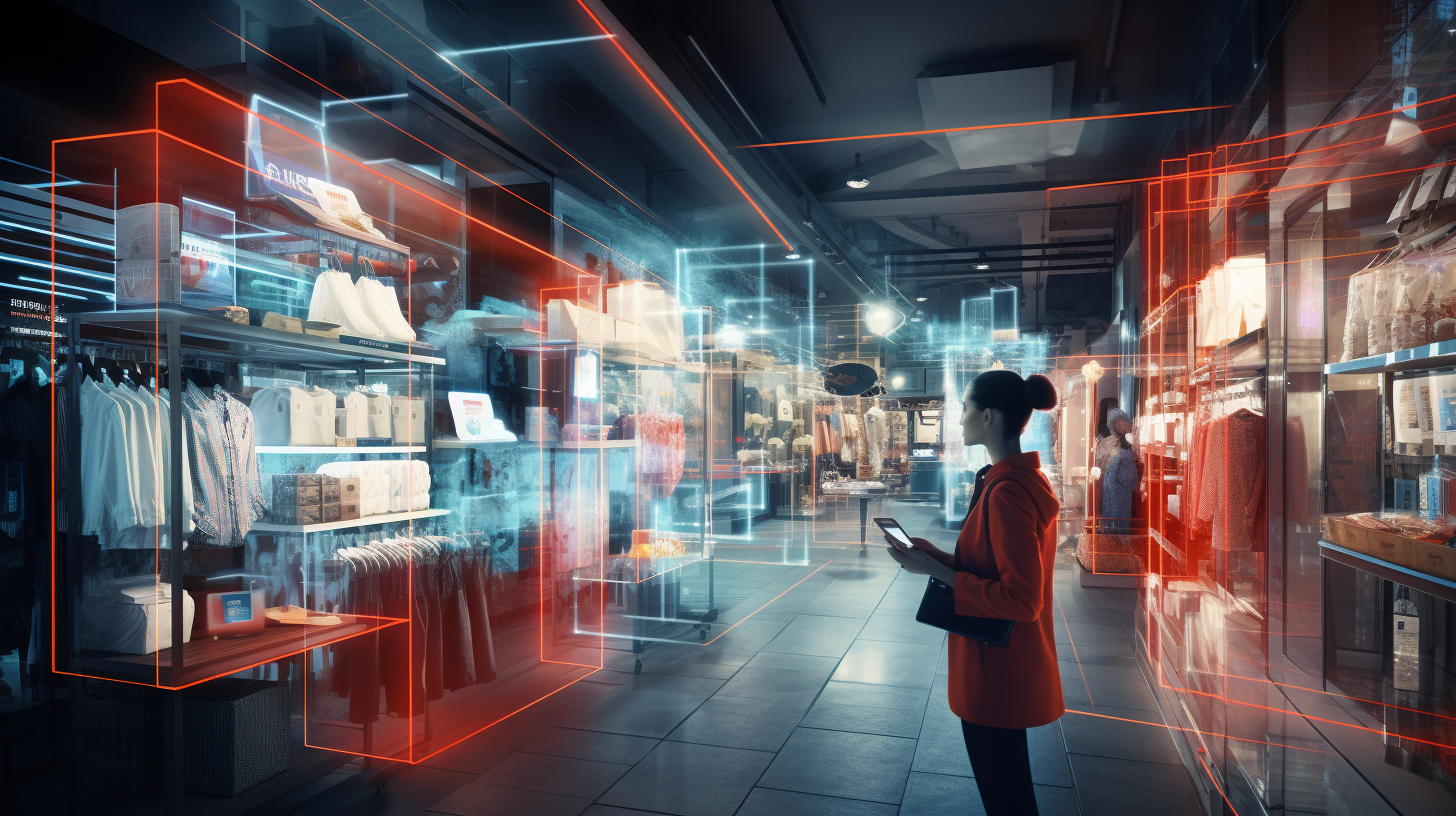
Business Intelligence for Retail: Transforming the Retail Experience
In today’s fast-paced retail environment, businesses are constantly seeking ways to stay ahead of the competition and deliver a personalized, efficient shopping experience for their customers. One of the most powerful tools that retail businesses can leverage to achieve this goal is business intelligence for retail. By harnessing the power of data analytics and real-time insights, business intelligence for retail enables businesses to make more informed decisions, improve customer experiences, and optimize operations. This article explores the significant role business intelligence for retail plays in reshaping the retail landscape.
Table of Contents
ToggleThe Role of Business Intelligence for Retail in Decision-Making
Effective decision-making is crucial for the success of any retail business, and business intelligence for retail provides the insights necessary to make smarter, data-driven decisions. By analyzing sales data, customer behavior, and market trends, business intelligence for retail helps businesses identify patterns and forecast future demand. This empowers retailers to optimize inventory management iowa headlines.com, adjust pricing strategies, and tailor marketing efforts to meet the evolving needs of their customers.
For example, business intelligence for retail can identify which products are performing well and which ones are underperforming. This insight allows businesses to make adjustments to their product offerings, ensuring that they stock the right products in the right quantities. In addition, analyzing customer purchasing behavior, businesses can identify cross-selling and up-selling opportunities, boosting revenue and improving the overall shopping experience.
Improving Customer Experience with Business Intelligence for Retail
Providing an exceptional customer experience has become a top priority for retailers, and business intelligence for retail plays a key role in achieving this goal. By utilizing customer data, retailers can gain a deeper understanding of their customers’ preferences, shopping habits, and buying behaviors. This information can then be used to personalize the shopping experience, create targeted marketing campaigns, and optimize store layouts.
For instance, business intelligence for retail can provide insights into the types of products customers are most interested in, allowing businesses to recommend products that are more likely to appeal to individual shoppers. Additionally, retailers can use business intelligence for retail to segment their customer base and create personalized promotions and discounts that resonate with specific groups, leading to higher customer satisfaction and increased loyalty.
Enhancing Inventory Management with Business Intelligence for Retail
Efficient inventory management is a critical component of retail success, and business intelligence for retail is a game-changer in this area. Retailers can use business intelligence tools to gain real-time visibility into their inventory levels, track stock movement, and predict future demand. This enables businesses to avoid overstocking or understocking, which can result in lost sales or excess inventory that ties up capital.
Through predictive analytics, business intelligence for retail helps businesses optimize their supply chain forecasting demand trends and determining the optimal stock levels for each product. For example, if business intelligence for retail reveals that a particular product is in high demand during specific seasons, retailers can adjust their purchasing and stocking strategies accordingly. This ensures that businesses are always prepared to meet customer demand while minimizing excess inventory.
Optimizing Pricing Strategies with Business Intelligence for Retail
Pricing plays a crucial role in a retailer’s success, and business intelligence for retail provides valuable insights that help businesses optimize their pricing strategies. By analyzing competitor pricing, customer willingness to pay, and historical sales data, businesses can set competitive yet profitable prices for their products.
For example, business intelligence for retail can highlight pricing trends and allow retailers to implement dynamic pricing strategies that adjust in real time based on market conditions. This can be particularly useful for businesses operating in highly competitive markets, where even small adjustments to pricing can significantly impact sales. With the help of business intelligence for retail, businesses can ensure that their pricing strategies are aligned with customer expectations, maximizing both sales and profit margins.
Streamlining Operations with Business Intelligence for Retail
Retail businesses are often faced with the challenge of managing multiple operations simultaneously, including inventory, marketing, staffing, and customer service. Business intelligence for retail helps streamline these operations providing centralized data insights that allow for more efficient management and decision-making. By integrating business intelligence into day-to-day operations, retailers can reduce inefficiencies, improve productivity, and ensure smooth operations across all areas of the business.
For instance, business intelligence for retail can assist with workforce optimization analyzing foot traffic patterns and sales data to determine peak shopping hours. This allows businesses to schedule the right number of staff members at the right times, improving customer service and reducing labor costs. Similarly, business intelligence for retail can optimize store layouts and product placement analyzing customer movement patterns and sales data to ensure that high-demand items are easily accessible, leading to increased sales.
The Impact of Business Intelligence for Retail on Marketing
Marketing is one of the most important aspects of a retail business, and business intelligence for retail can significantly enhance the effectiveness of marketing campaigns. By analyzing customer data and purchasing patterns, businesses can segment their audience and create personalized marketing strategies that are more likely to resonate with each customer segment.
For example, business intelligence for retail can help businesses identify which marketing channels are most effective at driving sales, allowing them to allocate marketing resources more efficiently. It can also help businesses track the performance of specific campaigns in real time, enabling them to make adjustments and optimize results as needed. With the ability to measure and analyze customer engagement, businesses can ensure that their marketing efforts are targeted, cost-effective, and aligned with their overall business objectives.
Leveraging Business Intelligence for Retail to Stay Competitive
In an increasingly competitive retail market, staying ahead of the competition is essential for long-term success. Business intelligence for retail gives businesses the tools they need to remain competitive providing insights into emerging trends, customer preferences, and market dynamics. By continuously analyzing data, retailers can identify opportunities for growth, uncover untapped markets, and adapt to changing consumer behavior.
For example, business intelligence for retail can help businesses identify market gaps where they can introduce new products or services. It can also provide insights into the success of competitors’ strategies, allowing retailers to make informed decisions about how to differentiate themselves in the market. By leveraging business intelligence for retail, businesses can not only respond to market changes but also anticipate them, positioning themselves as leaders in their industry.
The Future of Business Intelligence for Retail
As technology continues to evolve, the future of business intelligence for retail looks even more promising. With the increasing use of artificial intelligence (AI) and machine learning, business intelligence for retail will become even more powerful, offering real-time insights and predictive analytics that help retailers make smarter decisions faster. Additionally, the integration of the Internet of Things (IoT) with business intelligence for retail will provide even deeper insights into customer behavior and inventory management.
As retailers continue to embrace business intelligence for retail, the ability to make data-driven decisions will become an even more integral part of their operations. Businesses that invest in business intelligence for retail today will be better prepared to adapt to the future of retail and stay ahead of the competition.
Conclusion
In conclusion, business intelligence for retail is a powerful tool that allows retailers to optimize their operations, enhance the customer experience, and make informed decisions. By leveraging the insights provided business intelligence for retail, businesses can improve inventory management, optimize pricing strategies, and streamline marketing efforts. As the retail landscape continues to evolve, adopting business intelligence for retail will be essential for businesses looking to stay competitive and deliver exceptional experiences for their customers. Embracing data-driven decision-making will allow retailers to thrive in the digital age and achieve sustainable growth.



